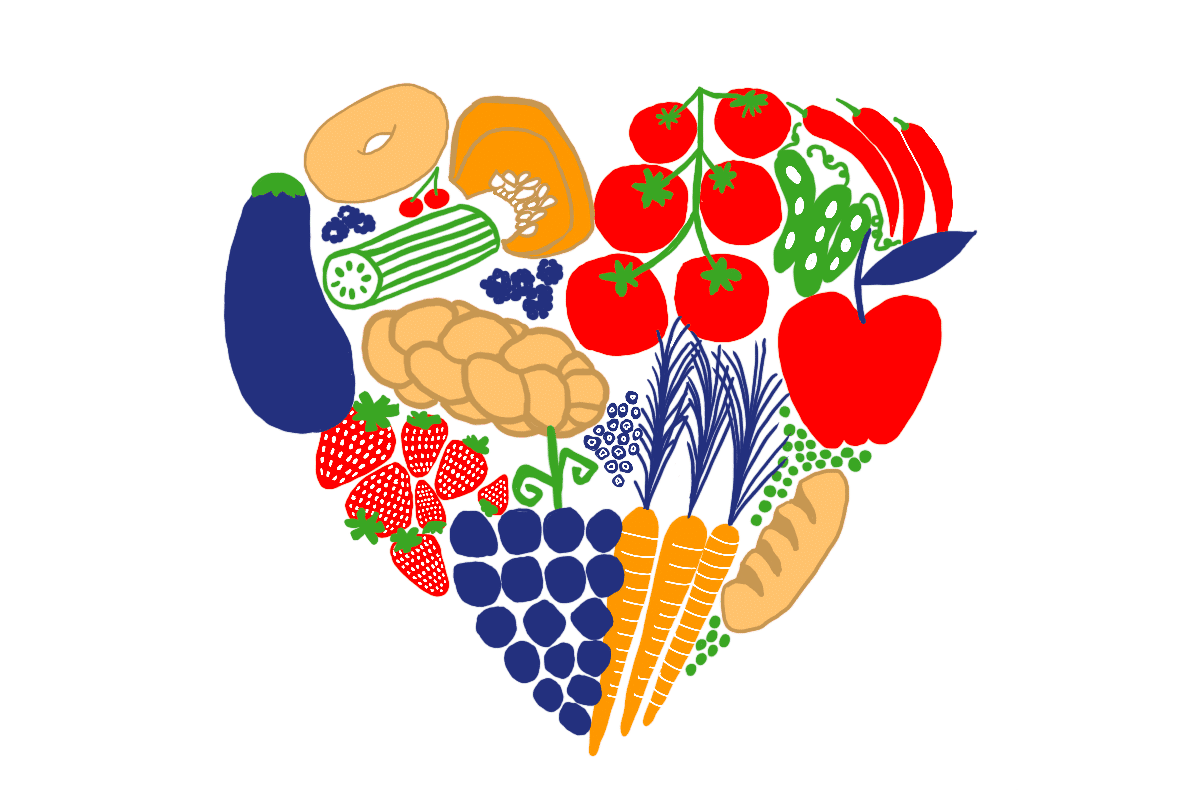
Right now, we’re in prime foodtime. For most Americans, the days leading up to Thanksgiving all the way through Christmas are filled with preparation for feasts, large gatherings, epic gingerbread creations, family recipes revived, classic side dishes, and an ungodly amount of butter. (Or if you’re vegan, an ungodly amount of coconut oil-based spread.) At New Thinking, we’ve already featured a healthy dose of food-inspired fodder, from Nick Slater’s musings on the therapeutic joys of cooking for one to Mark Chandley’s advice on eating for health, and we’re likely to see a few more alimentary articles before the year’s out. As a seasoned kitchen dabbler, I can’t resist making my own addition to our culinary conversation.
As the aforementioned articles prove, food is a complex part of human life. It’s part biological necessity, part cultural artifact, part psychological totem. We can use food as medicine or fuel, as an elevated art form, or a tool for emotionally-motivated self-harm—just ask anyone who’s eaten late-night Taco Bell. What food means to us depends on how and where we were raised, our beliefs and traditions connected to it, and, of course, individual personal preferences.
For me, I’ve long held the belief that Food = Love. This was the motto of Terrace, my eating club during college, but it worked as a general ethos for me both well before and long after I graduated. (Note that, as a home to creative, weed-smoking types likely to have the munchies, the food at Terrace was consistently excellent, and it was a place where I always felt well-loved.)
The love that springs from the kitchen was a concept ingrained in me from the earliest age. Every Saturday, my sister and I would wake up to make scratch pancakes under my father’s supervision, each of us wearing a floppy chef’s hat. (We have home video footage of my sister perfectly cracking an egg with one hand at age three—only to dump the entire shell into the batter afterwards.) Mom and Dad would take turns cooking, and as kids, we were always invited to spectate or participate from around the butcher block. It was a family affair, and food became a love language I speak fluently.
To me, cooking is synonymous with love and family. The more I love you, the more I’ll cook for you. Just ask my husband about the picnic of sous vide brisket and brulee torch-smores I made us for one of our early dates. Buying something premade from the store feels like getting a gift card instead of picking out a present. It’s just… not to be done.
As I’ve previously covered, I inherited a certain maniacal ambition from my father for tackling big projects in the kitchen, which I’m working on tempering somewhat. Needless to say, my biggest feats have always been attached to some significant family event: a batch of nostalgic sourdough schrippen—German rolls—for my sister’s birthday; einkorn-based baked goods to quell my mother’s diverticulitis for Mother’s Day; the gingerbread Nakatomi plaza to show my Die Hard-loving family, separated by the pandemic, that I was missing them at Christmas.
The spectacle is fun, but to me, the flavor is paramount. Imperfection adds to charm, but it’s a sin if the creation is not deeply delicious. My favorite thing in the world is to see a loved one gawk at a particularly enticing spread I’ve presented, and watch as they close their eyes and savor a perfect bite I’ve crafted. It brings me back to high school musical night rehearsals, where my Dad would pack up heaps of homemade penne alla vodka—my favorite—and cookies to share, and all my grease-painted friends and I would cover up our costumes and chow down in the green room. It’s always fun to eat something cooked with love—and it’s even more fun to become that cook.
These days, my “food as love” perspective is evolving towards the food as fuel or medicine standpoint. I’ve found how refined sugar can encourage you to eat until you’re sick, and how dairy fat makes me… well… not that fun aromatically to be around for several hours. And like many others, I’ve had moments in my adult life where food has not been love, but part of a guilty secret shame.
So my kitchen experiments have shifted to see how I can hide extra protein in my recipes, how to create lasagna and pasta out of zucchini with my kitchen gadgets, and if nutrient-rich coconut sugar or alternative natural sweeteners will work in my desserts. (Note: any brown sugar recipe can work with coconut sugar, which has a lovely toasty quality, a lower glycemic index, and way more vitamins/nutrients than cane sugar. Also: fat-free Greek yogurt works ridiculously well as a sub for sour cream. Just ask my borscht!) Because as much as I love exploring a new recipe and creating an indulgent meal, I don’t really love the food coma with a sodium-sugar hangover after. It doesn’t feel so… loving.
The trick is finding the balance: where food can be fun, and you can enjoy and savor it, but it still serves its purpose as fuel and doesn’t become a self-sabotaging weapon. And even if you do go full butter extravagance, you’ll be perfectly fine if in the bigger picture you’re treating your food as a source of nourishment and fuel.
Hopefully, your holiday tables will have a vegetable or two upon them, and you’ll find some glasses of water between the eggnog and brandy. And if/when you do ascend the heights of your most opulent moment of holiday feasting—don’t go into the shame spiral: fully own it. Love is much better for your digestion.



